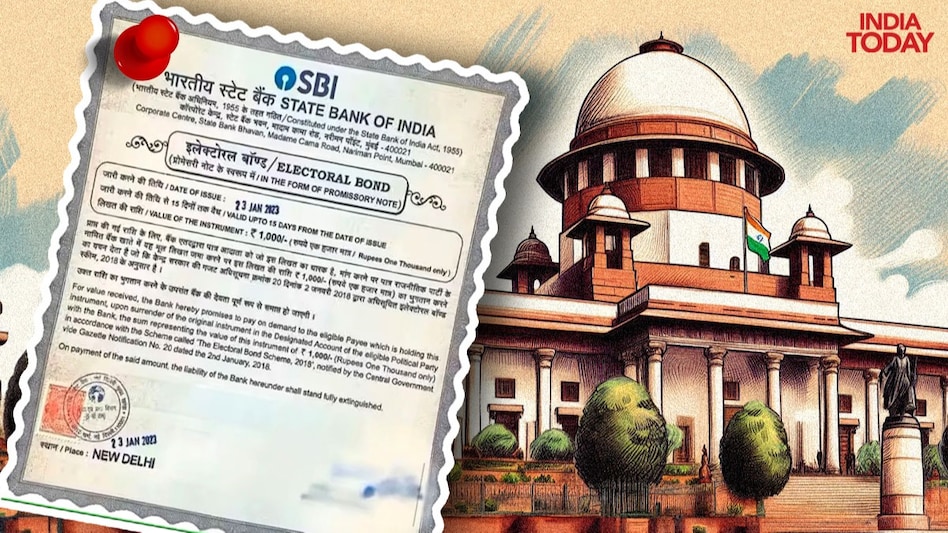In a groundbreaking decision, the Supreme Court has directed the State Bank of India to cease the issuance of electoral bonds immediately. This move comes after the apex court deemed the electoral bonds scheme as ‘unconstitutional‘, emphasizing concerns over transparency and accountability in political funding.
Unveiling the Controversy: Electoral Bonds Under Scrutiny
Electoral bonds, often touted as a means to streamline political funding, have come under intense scrutiny due to their opaque nature. Acting as promissory notes or bearer bonds, these instruments allow individuals and companies to contribute funds to political parties anonymously. However, critics argue that this anonymity fosters a culture of quid pro quo, where donors may expect favors in return for their financial support.
Supreme Court’s Verdict: Striking Down the Electoral Bonds Scheme
In a landmark verdict, a five-judge Constitution bench, led by Chief Justice DY Chandrachud, unanimously declared the electoral bonds scheme as ‘unconstitutional’. This decision underscores the court’s commitment to upholding democratic principles and ensuring transparency in the electoral process.
SBI Ordered to Halt Issuance and Submit Details to Election Commission
The Supreme Court’s directive to the State Bank of India to immediately halt the issuance of electoral bonds marks a significant step towards reforming political funding practices. Additionally, the SBI has been instructed to submit all details of electoral bonds purchased since April 12, 2019, to the Election Commission by March 6. This move aims to enhance transparency and accountability by making all donations public within a week of receipt.
Implications of the Verdict: Shaping the Future of Political Funding
The Supreme Court’s verdict has far-reaching implications for the future of political funding in India. By striking down the electoral bonds scheme, the court has signaled a shift towards greater transparency and accountability in electoral financing. This decision is likely to influence legislative reforms aimed at curbing the influence of money in politics and fostering a more equitable democratic process.
Looking Ahead: Reforming Political Finance for a Transparent Democracy
As India navigates the complexities of its democratic landscape, the need for transparent and accountable political financing mechanisms becomes increasingly apparent. The Supreme Court’s decision to strike down the electoral bonds scheme is a significant step towards achieving this goal. Moving forward, it is imperative for policymakers to explore alternative avenues for political funding that prioritize integrity, fairness, and the public interest.
Conclusion: A Victory for Democratic Values
In a historic ruling, the Supreme Court has taken a decisive stance against the opaque and potentially corrupting influence of electoral bonds. By declaring the scheme as ‘unconstitutional’ and ordering its immediate cessation, the court has reaffirmed its commitment to safeguarding the integrity of India’s democratic process. This verdict represents a victory for transparency, accountability, and the principles of democratic governance. As the nation moves forward, it is essential to build upon this momentum and enact reforms that promote a more transparent and inclusive political system for all citizens.
